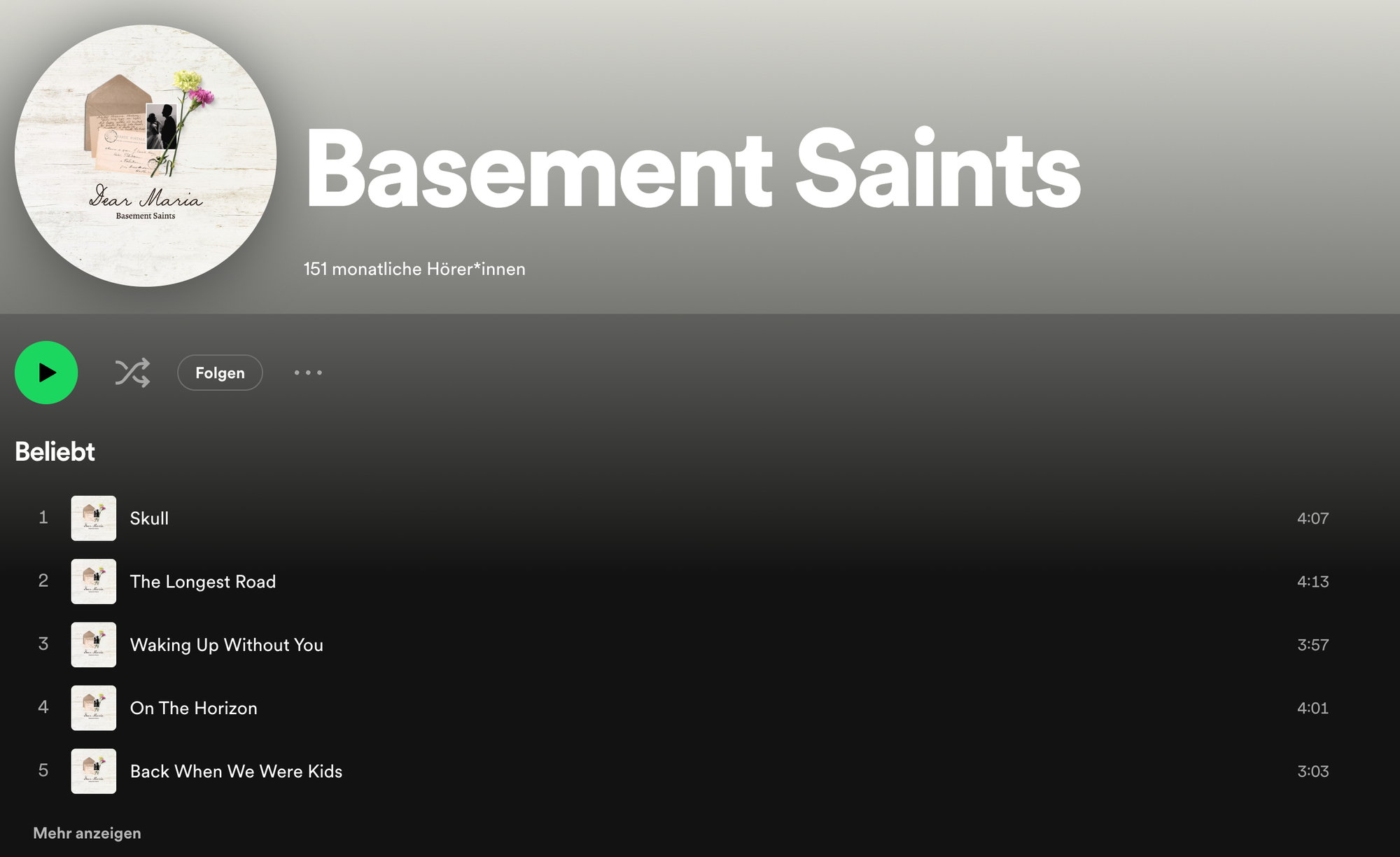Last week, Negative White reported on an incident where unknown scam artists uploaded an AI-generated album in the name of Swiss rock trio Bell Baronets. Since then, the story has been picked up by Swiss magazine Beobachter.
But also, more fake album uploads have been reported. Another Swiss band, Basement Saints, came forward. Like with Bell Baronets, the album has been removed from their profile but lives on in a namesake artist profile, hurting their search results on Spotify.

Today, an album has been uploaded to the profile of Mama Jefferson, another Swiss rock band. However, the band is currently on a hiatus since the previous singer, Vanja Vukelic, emigrated from Switzerland.
We want to hear from you. Contact us via hello@negativewhite.com.
Bell Baronets’ Silvan Gerhard, who is also a member of Mama Jefferson, confirmed to Negative White last week that the band remains currently on a break.

AI Increases A Known Problem
As the New York Times wrote several days ago: «For $20, artists can buy an annual subscription to a music distributor, a company that can instantly post songs to dozens of streaming platforms.» And further: «Some marketers have been caught trying to juice the profile of legitimate artists, usually with “bot farms” programmed to play songs on repeat. More often, though, scammers simply create white noise tracks or A.I.-generated tunes on their computers.»
The scheme of abusing the lacklustre verification process between aggregators and streaming platforms we described last week is also a long-known problem. Already in 2019, Pitchfork reported on the issue—including the typical empty corporate statements by both aggregator companies like DistroKid and streaming platforms (DSPs) like Spotify.
However, today’s generative AI tools enhance the problem’s severity: Songs and albums are created within minutes. Last year, Spotify reportedly removed «tens of thousands» of songs from the platform.
How You Spot Fake Albums
AI-generated albums and fake artists are still quite easy to detect. Here are some dead giveaways:
- The cover has an AI-generated aesthetic that probably differs significantly from the band’s previous visual language.
- The album appears suddenly without announcement. While surprise album drops can happen, they are the exception. Most artists will tease their albums with singles and social media posts.
- The songs sound either vastly different, even being a different genre, or the production quality and mix are not on the level with previous real recordings.
- AI fakes uploaded to fake artist profiles can be spotted by checking the artist’s profile. The biography is either empty or ChatGPT-produced emptiness. Social media profiles or photos are missing.
Trust Will Fade
Since we are dealing with a loophole that has been publicly known for years, one might wonder why aggregators and DSPs couldn’t put guardrails in place. Technically, it wouldn’t be a significant challenge.
But they don’t seem to care enough, and why would they? Whether it’s a legitimate upload or not, they take a cut of the money anyway. And if the fake uploads primarily affect bands operating under the radar, their reputation won’t take a blow, and legal ramifications are highly unlikely.
AI-generated music will undoubtedly become the music business’ biggest challenge in 2024. Dealing with emerging problems like these fake uploads should be a top priority. Otherwise, musicians must ask themselves why they should invest time and money to build their brands only to be abused by scammers who profit from their efforts.





